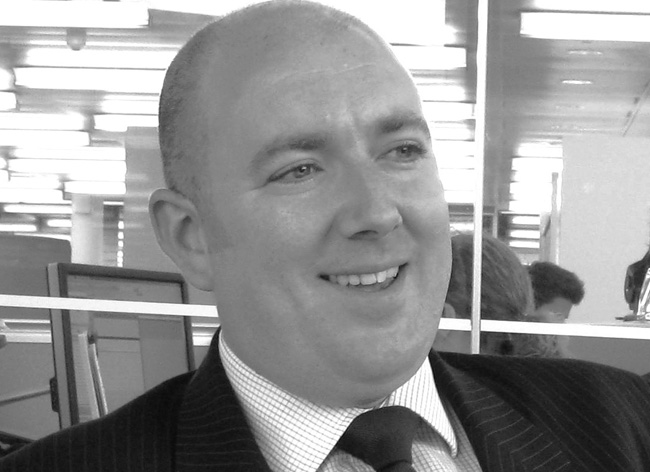Greg Bradley is Partner and Business Advisory practice leader for Arcadis (formerly EC Harris) in the UK, covering Buildings, Infrastructure, Water and Environment sectors. He speaks to the MCA about consulting's role in Arcadis, the impact of Brexit and adopting Consulting Excellence.
What does Consulting Excellence mean to Arcadis?
We are very excited about Consulting Excellence. The feedback from our team has been very positive. It is important to us that there is a set of common industry standards around ethics, client value and professional development.
Professional development, in particular, is a big focus for us. We are currently working on aligning our business advisory career framework with Consulting Excellence, as well as the MCA and the Young MCA more broadly.
With strong engineering, project management, commercial management and environmental businesses, this will help us turn up the volume around business advisory.
Arcadis is not primarily a management consulting firm, but here you are with a very vibrant, progressive and growing consulting offer. How is consulting’s contribution valued by the rest of the firm?
We do a lot of management consultancy work in different areas. One of the things we are working on is giving our consulting work a stronger identity. We are currently refreshing our strategy for advisory, after it was introduced three years ago. It has forced us to ask that question ‘where does business advisory fit?’. The articulation is that management consulting is the spearhead for what we do at Arcadis. We try and help clients solve complex problems, by providing them with sustainable solutions for the outcomes they seek.
We are currently creating a career framework that is aligned to management consultancy along with creating an academy where we’ve got a lot of training material around classic consulting techniques. This include diagnostics, change management, operating-model design and supply chain. By creating a systemic accredited training mechanism for our consulting business, we are creating a much stronger identity within Arcadis.
Do you see Brexit having an impact on Arcadis’s consulting practice?
We have tried to look at Brexit through the eyes of our clients and have spent time talking through it with them. There’s been a lot of discussion in the media and there is a danger of creating self-fulfilling negative prophecies around this.
Our view is to be calm, and for many of our clients, particularly in regulated sectors, the consequences and impact of Brexit is quite minimal. For some other clients the uncertainty is causing them to think and pause. In some cases, this might lead to either accelerating or delaying activities, particularly with investor led projects. This kind of intervention isn’t a new thing, the reason behind it may be different but the techniques are business as usual.
We are trying to help our clients think options through, and offer suggestions and solutions in a helpful way. Most of the questions we have been asked relate to natural and built assets, which is where we are best placed to advise.
You won an MCA award for your work on the Thames Tideway Tunnel, do you see the funding model that you used being replicated in future infrastructure projects?
We were delighted to win the award and very proud of that achievement. What made the difference was working vendor side for an asset which hadn’t actually been built yet. Investors typically don’t like construction risk. The interesting thing with this piece of work was that we were able to combine some of the financial due diligence and modelling along with engineering, project management, programme management and commercial management. All of these components gave investors the confidence they needed. It took a bit of doing. We had a total of 57 people working on the project. There were a lot of questions coming through and we had to be super organised and agile.
The other big aspect was around the collaborative behaviour with the vendor and the way it was set up with the potential investors. There was quite a clear financial model around how revenue would flow and what the returns could be in the asset.
What effect do you think the National Infrastructure Commission will have on maintaining the UK’s competitiveness and growth?
I think it will be quite easy to use Brexit as an excuse, but frankly I don’t think this is good enough. We have a very successful set-up in London, but replicating this in other cities is proving a challenge. Similarly we need to get on with implementing national transport and energy plans.
Brexit could pose some challenges around funding. The UK has always been a very attractive place to invest because there’s a lot of stability around regulated assets and the environment. The Infrastructure Commission has the opportunity to enable stability of those mechanisms going forward because there is a clear financial and commercial model for those assets.
What advice would you give to a young consultant joining the industry?
Moving into management consultancy can be quite difficult for people coming into it completely cold. In my opinion, there are typically three capabilities that are needed to be a trusted advisor; knowledge of your sector, knowledge around your firm’s service offerings and emotional intelligence to know how to operate within the client environment. These skill sets take time to build and develop.
What we are looking for in Arcadis Business Advisory is talent, capability, energy, enthusiasm and integrity.

